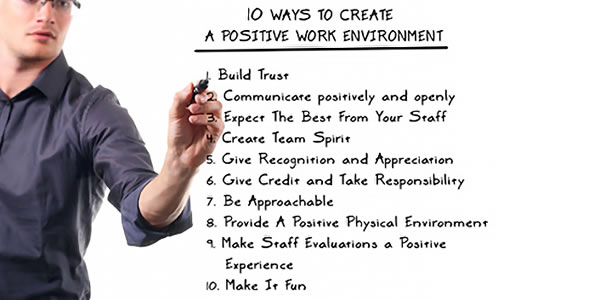Frank Picone has worked in organizations that operate residential treatment programs (Shelters, Group Home, RTC, Psychiatric Community Homes, Specialty Programs, and Treatment Homes) for over 30 years. He has worked as the Therapist, Clinical Supervisor, Assistant Executive Director and Executive Director. He has also trained, coached and facilitated culture change in dozens of other residential treatment programs. He can provide 4 types of services to your residential treatment programs.
Mr. Picone will schedule a conversation with you to hear about your residential treatment program and your ideas for what you feel needs improvement and provide feedback to some of the ways he feels he can be helpful. This is a good no cost first step to get a sense of who Frank is and what he can do to be helpful to you and the fees associated with these services.
Mr. Picone will come to your residential treatment program and do a strengths and needs assessment. Through meetings with staff, surveys and direct milieu observation he will develop a report that will identify where he feels your program is strong and where there is room for improvement. He will also provide recommended training topics that would address those needs.
Mr. Picone will provide a specific training at your residential treatment program either full day or part day that will be engaging, interactive, fun and filled with practical approaches for next day implementation. Mr. Picone can also customize a training by blending 2 or more of his current trainings so that it best meets the needs of your residential treatment program.
Either with a team you put together or individual leaders Mr. Picone will meet in person and have phone sessions over an identified period of time and occurrences to guide you or your team through the implementation of a positive culture change process. This service can be an add on to a training experience if you want to enhance the likelihood of the training translating into practice in your residential treatment program.
The following training experiences are designed to help residential treatment providers create and maintain more Positive Cultures for the youth they serve and the staff that work there:
The Nurtured Heart Approach® was created by Howard Glasser MA who introduced it in his first book “Transforming the Difficult Child” which became the bestselling book on the topic of treating ADHD. Mr. Picone is a Certified Advanced Trainer in the Nurtured Heart Approach®.
Who is this training for? It is for all residential staff but primarily for direct care, Supervisors, Therapists and administrators
What will they learn?
- The power of the therapeutic milieu that have the proper balance of rewards and consequences
- The 3 Stands of the Nurtured Heart Approach
- The 4 types of powerful recognition statements
- The 3 foundational principals behind the approach

.
Who is this training for? It is for all residential staff but primarily for direct care, Supervisors and administrators
What will they learn? This training experience will provide all residential staff with an overview of the following areas:
- How the emotional and physical environments we grow up in shape the way we see the world and the way we meet our needs
- How exposure to trauma results in the development of survival skills for the youth and the staff.
- How staff are exposed and affected by the trauma of the residential work environment
- Strategies to maintain high levels of professionalism and teamwork
- The key components of the optimum residential treatment environments
- Key attributes of high quality staff
- An overview of the crisis cycle
- Numerous interventions to use at each stage of the crisis cycle to restore safety
.
Who is this training for? It is for all residential staff but primarily for administrators and organizational leaders.
What will they learn? This training builds on the foundational work of Stephen Covy, John Kotter, Marcus Buckingham and Howard Glasser to provide practical approaches and philosophies of management and leadership that will help leaders create and maintain positive work environments. Participants will leave the training with the following:
- a comprehensive understanding of the impact the work culture has on staff performance;
- a clear understanding of the key components of negative work cultures and positive work cultures;
- strategies for creating a positive work culture when faced with many challenges (low morale, no support, multiple changes in leadership, overworked),;
- where to best devote your energy and time and with whom; the 3 types of staff in all organizations and how to best manage each type; using positive recognition to promote the behaviors you want to see more of;
- and the importance of measurement of performance.
- Understand three intentions that when implemented will have a positive effect on work culture.

.
Who is this training for? It is for all residential staff but primarily for direct care, Supervisors, therapists and administrators.
What will they learn? Participants in this training will upon completion understand the following
- What are the ways adolescents make engagement difficult?
- Why it makes sense for them to behave this way.
- The 3 conditions that must be created to engage the adolescent and create a customer for change
- Ten tips for successful engagement.
- At least one technique for dealing with 5 common roadblocks to relationship building.
- Seven ways we close communication

.
Who is this training for? It is for all residential staff but primarily for direct care, Supervisors and therapists.
What will they learn? Based on the work of Bill Miller and Steve Rollnick from their book “Motivational Interviewing” this approach describes a way of interacting with clients that clarifies and enhances ones intrinsic motivation to change. Upon completion of this training participants will understand:
- Why motivation and self efficacy are the key factors in the change process
- What discrepancy is and techniques for enhancing it.
- How to utilize the decisional balance technique
- Who the most influential person in our lives?
- The 5 steps in MI and at least two ways to nurture movement from step to step

.
Who is this training for? It is for all residential staff but primarily for therapists and staff who run group
What will they learn? After completing this interactive training participant will understand:
- The 5 essential group rules and how to introduce them
- The 3 essential conditions the leader must create for youth to put down their “survival skills”
- The role of the group leader
- The 3 essential communication skills to teach, model and encourage in group
- How to create fun activities that teach health communication and respect

Who is this training for? It is for beginning level clinical supervisors
What will they learn? This training examines the role of supervisor and some of the critical areas new supervisors need to develop to be successful. After completing this interactive training participant will understand:
- Can you be friends outside of work with those you supervise?
- What topics should be off limits in supervision discussions
- How to conduct performance reviews
- Essential documentation
- How to deal with difficult staff
- How to motivate your staff to be their best.

.
Who is this training for? It is for all residential staff but primarily for direct care, Supervisors, therapists and administrators.
What will they learn? Participants who complete this training will understand:
- The difference between stress and burnout
- The symptoms of burnout
- How to use the “Energy Exchange Pie Chart” to assess key areas of one’s life in terms of what brings and expends energy.
- How to create a plan to prevent and reverse burnout patterns of behavior

Who is this training for? It is for therapists.
What will they learn? This training incorporates cognitive behavioral, solution focused approaches and concepts from Arnold Van Gennep’s book “Rites of Passage” to provide therapists with a blueprint for how change occurs and how to assist the client with specific strategies tailored for each step in the process. The following areas will be covered
- The top 7 reasons people do not follow instructions
- How to create a motivating relationship
- The 3 phases of becoming a customer for change
- The three phases of the change process
- The art of reframing
- An overview of the solution focused approach
- Strategies for facilitating the client’s movement through the 6 steps of change


